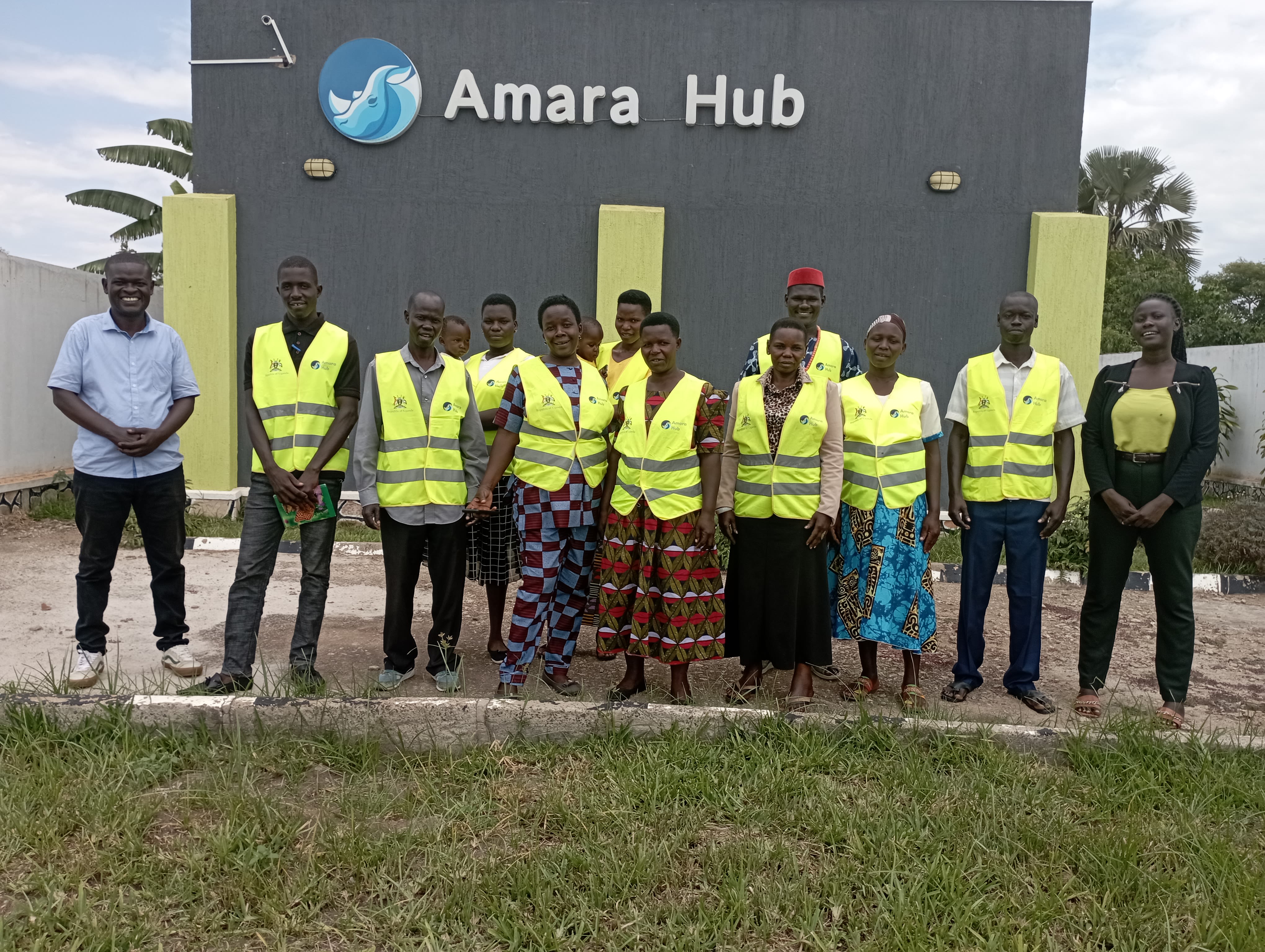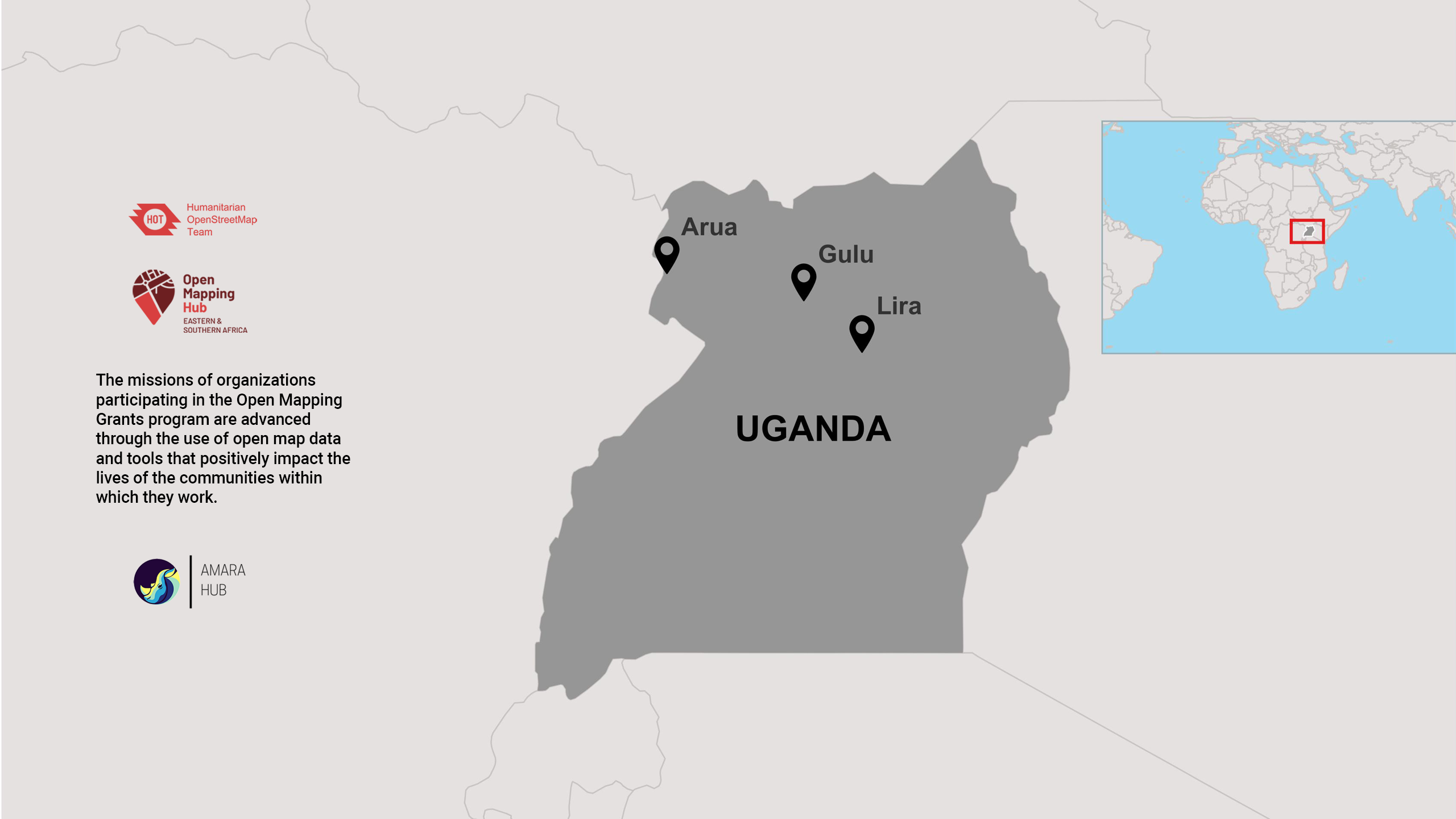Mapping Contraceptive Access in the Newly Formed Cities in Northern Uganda

The Amara Hub, under the Eastern & Southern Africa's Open Mapping Grants program, worked with the Ministry of Health to map contraceptive access sites using mobile open mapping tools in Northern Uganda in the newly formed cities of Lira, Gulu, and Arua.

Background
Access to a comprehensive range of contraceptive options is a fundamental right, enabling individuals to make informed choices about family planning. However, reliable information on contraception access remains scarce, hindering people’s ability to make conscious decisions regarding their reproductive health. Recognizing the need for accurate information on where contraceptive services are available, Amara Hub partnered with Uganda’s Ministry of Health to map contraceptive access sites in the newly formed cities of Lira, Gulu, and Arua in northern Uganda in OpenStreetMap.
Approach
Through the Eastern & Southern Africa Open Mapping Hub’s Open Mapping Grant Program, the project set out to strengthen the capacity of community health workers to utilize open mapping in bringing contraceptive services closer to the community.
Amara hub first met with city officials to plan the project and identify a gender diverse group of community healthcare workers to participate in data collection of health site locations. A total of 31 volunteer community health workers from Lira, Gulu, and Arua cities were trained and engaged in field data collection using GPS-enabled tablets. Amara Hub then partnered with the Youth Mappers Chapter of Gulu University university to validate and conduct quality checks, and uploading the locations of clinics and other points of interest to OpenStreetMap.
The maps were shared with the respective stakeholders: government health officials, health facilities, and local NGOs supporting reproductive health services. In addition, the generated mapped data will also be available to approximately one million young people (Uganda Bureau of Statistics, 2018) living in Lira, Gulu, and Arua.

Impact
529 Points of Interest Mapped | 31 Health Workers Trained | 4 Partnerships
Through this project, Amara Hub, and mapping partners, Kakebe Technologies and the Youth Mappers Chapter of Gulu University, have been equipped with new skills and open mapping tools. Contraceptive access in Arua, Gulu, and Lira have been added to OSM. These points include hospitals, health centers, clinics, and pharmacies. As a result of this exercise, the team also discovered and added non-conventional access points like bars, supermarkets, hotels, and guest houses.

Looking ahead
Future plans for the project include extending these services to other public health initiatives and thus meeting the local demand for geodata to support health informatics programs in Northern Uganda, as the resultant maps and databases can also be used by government health officials and health facilities to support the planning of health interventions, monitoring outbreaks, identifying vulnerable populations, and accurate communication of health data.

